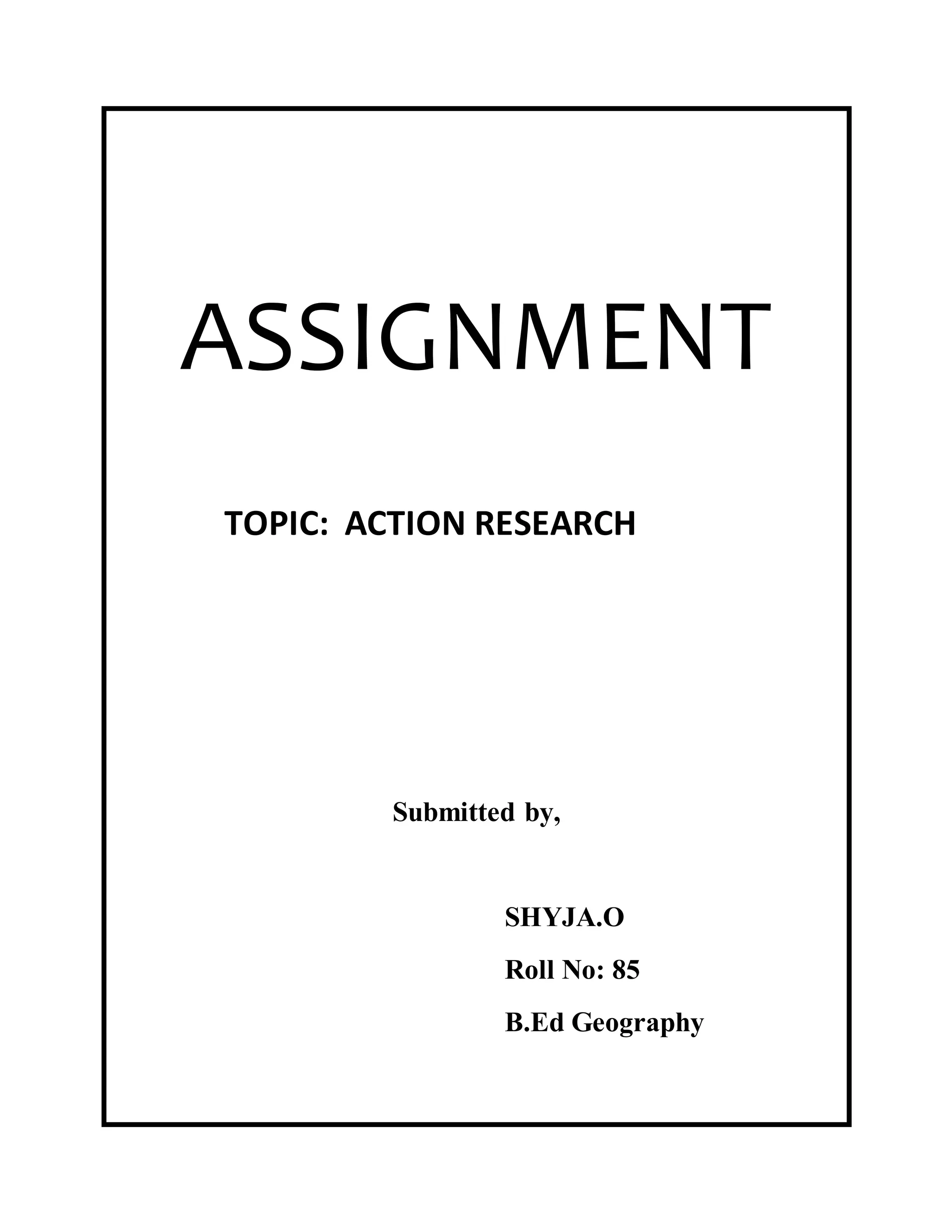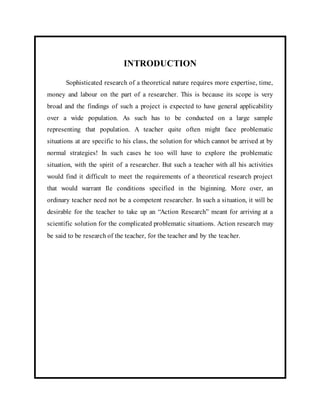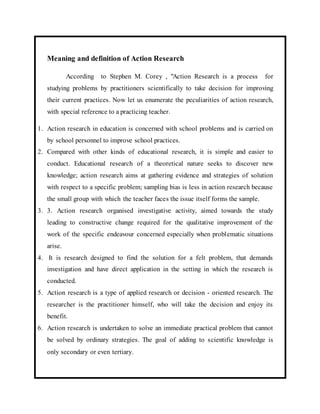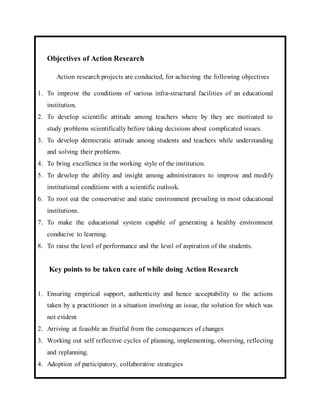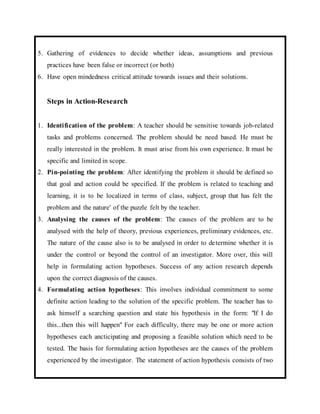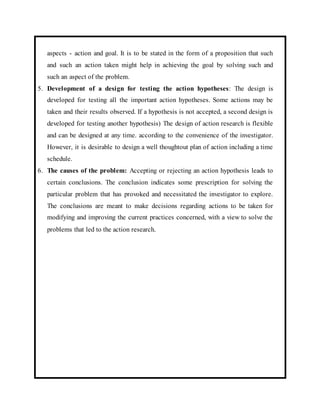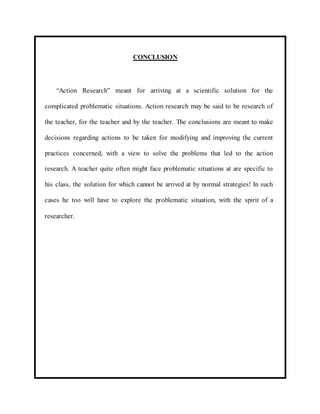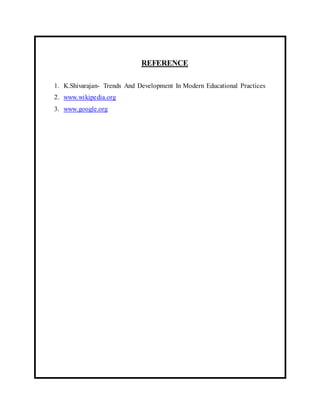This document discusses action research, which is a type of research conducted by teachers to address specific problems in their classrooms. It cannot not be addressed through normal strategies. Action research is meant to find scientific solutions for complicated problems through a process conducted by, for, and of the teacher. This includes identifying issues, analyzing causes, developing hypotheses to address them, designing tests of the hypotheses, and drawing conclusions to modify practices and solve the original problem. The goal is to empower teachers to study classroom problems scientifically and make evidence-based decisions.
